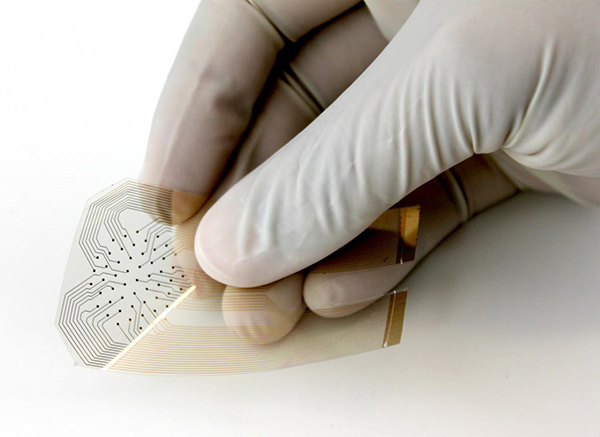
Pressure ulcers are difficult to manage because patients develop them at different rates and by the time you spot one, well, it’s already an ulcer. Researchers at UC Berkeley have now created a flexible sensor that, when applied to the skin, can detect pressure-caused tissue damage before it’s visible to the human eye.
The device utilizes impedance spectroscopy to map out the tissue below its electrode array. In a study just published in Nature Communications, the researchers have shown that variations in this map correlate to tissue damage, at least when tested on rats. Healthy tissue resists the passage of electricity, while tissue with lots of injured cells lets it lead through. Thanks to the dozens of electrodes within the array placed within millimeters of each other, the map can be created with a high resolution.
The next steps will hopefully involve testing the non-invasive technology on human subjects, hopefully leading to the commercialization of this technology in the form of entire bed sheets capable of sensing the body and maybe even smart underwear for wheelchair users.

esearchers varied the amount of pressure applied to the skin, creating bedsores ranging in severity. The orange hexagon marks where the bandage was placed on the skin, and the dotted blue circle highlights where pressure was applied to the tissue. The “reversible damage” example highlights the sensitivity of the “smart bandage” impedance sensor since the wound is not visible at the surface of the skin. (Schematic courtesy of UC Berkeley)
Study in Nature Communications: Impedance sensing device enables early detection of pressure ulcers in vivo…
Source: University of California, Berkeley…
The post Smart Bandage Spots Bedsores Before They are Even Visible (VIDEO) appeared first on Medgadget.
